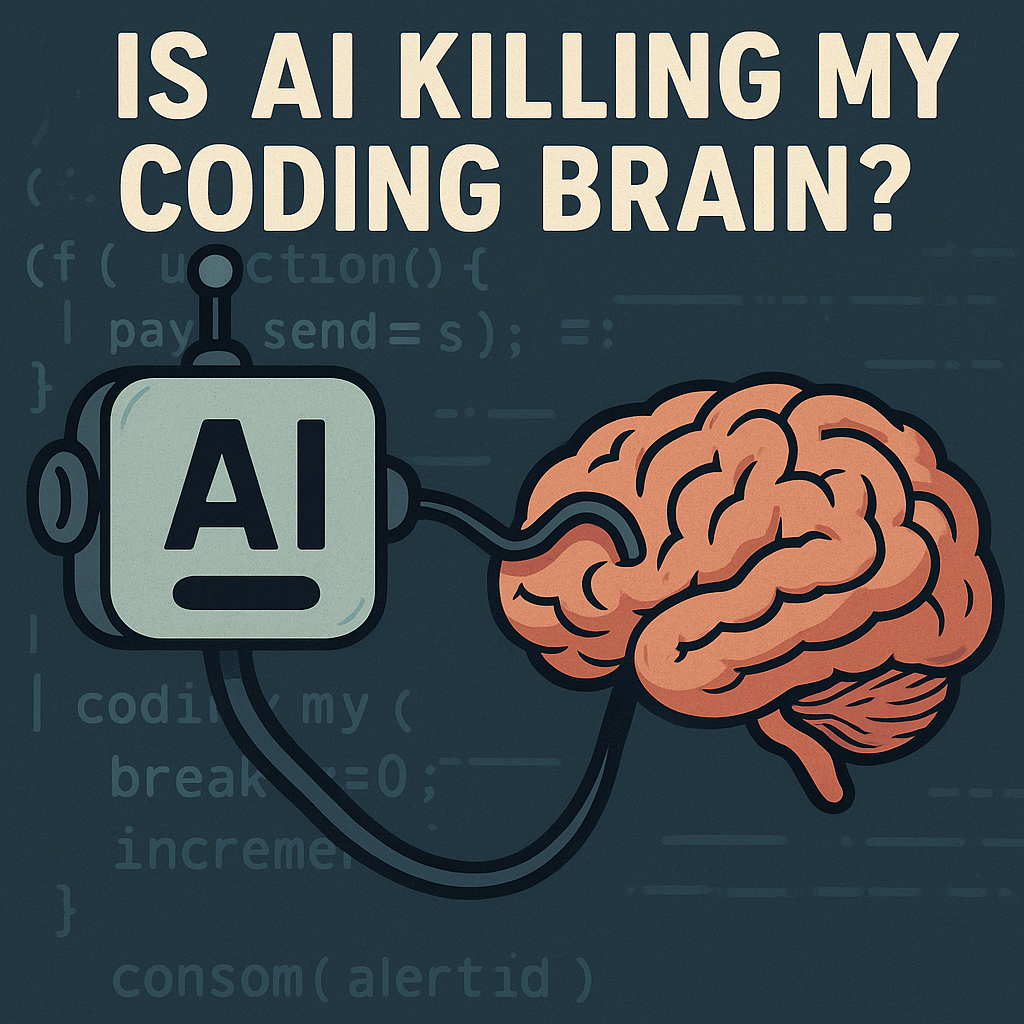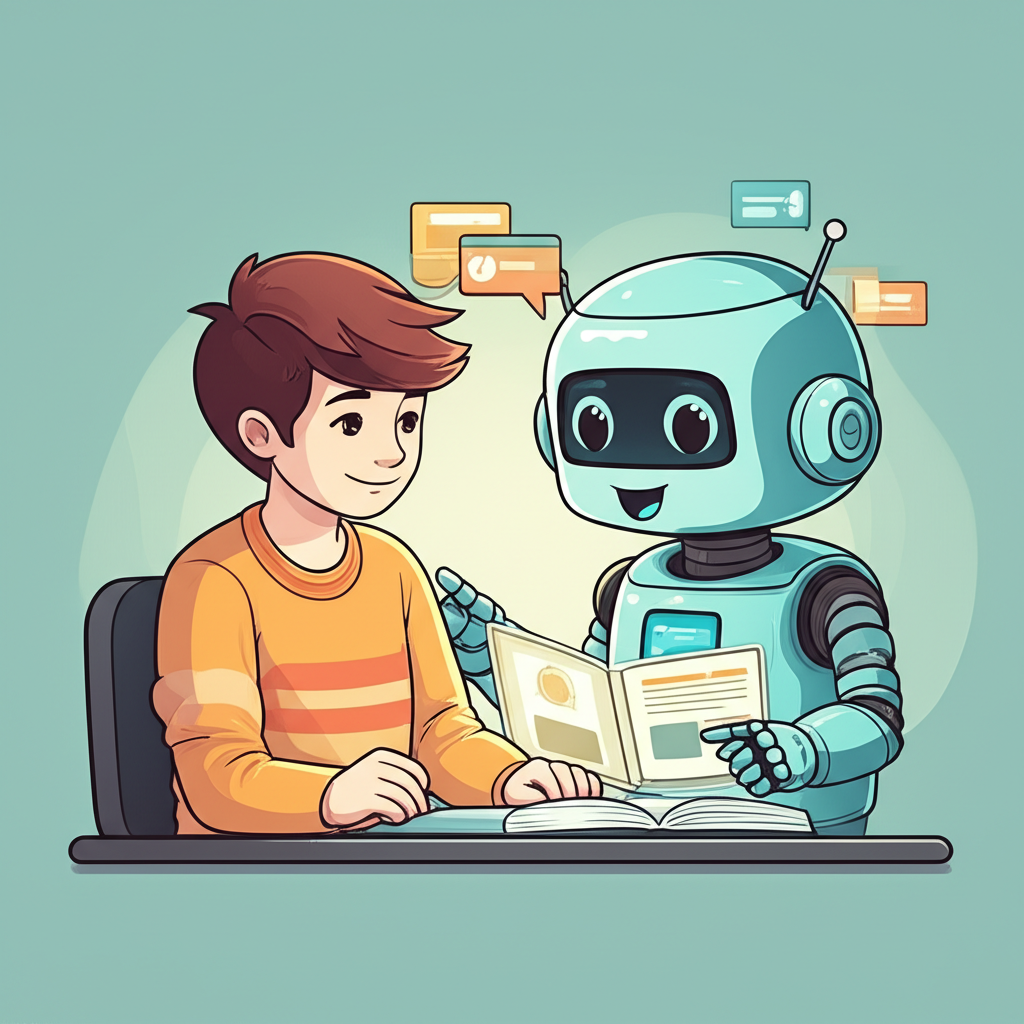AI tools like ChatGPT, GitHub Copilot, and AI-based code generators are becoming extremely popular among students and beginners in programming. They can help you write code faster, explain concepts clearly, and even suggest solutions when you’re stuck.
Sounds amazing, right?
Well yes, but here’s the thing many beginners fall into the trap of completely depending on AI. Instead of learning, they let AI do all the thinking. And that’s where the problem begins. If you rely 100% on AI, you might be able to copy-paste your way through assignments or small projects, but when it comes to real-world challenges, interviews, or debugging your own code, you’ll struggle.
In this blog, let’s explore why depending fully on AI is a mistake and how to use these tools smartly so they actually accelerate (not replace) your growth as a programmer.
Why Depending Fully on AI Tools is a Mistake
1. You Don’t Learn Problem-Solving
Programming is not just about writing code. It’s about thinking logically, breaking down problems, and building solutions step by step. If you ask AI to solve every problem for you, your brain won’t get the chance to practice this process. Over time, your problem-solving muscles weaken.
Imagine trying to get fit but asking someone else to do push-ups for you. You’ll never build strength that way. Similarly, if AI does all your coding, you won’t develop the mental strength to solve problems independently.
2. You Become a Copy-Paste Developer
AI makes it very tempting to just copy-paste answers. But this creates dependency. You’ll find yourself asking AI for every little thing instead of figuring it out.
Why this is dangerous:
-
In interviews, you’ll be asked to explain your code. Copy-paste won’t help.
-
Many coding challenges require custom solutions. AI might not always generate the exact code you need.
-
During exams or whiteboard tests, AI won’t be there to save you.
Example: If AI writes a sorting function for you and you don’t understand how it works, what happens when the interviewer asks like can you explain the logic behind this? you’ll be stuck.
3. Weak Debugging Skills
Ask any experienced developer, and they’ll tell you debugging takes more time than writing code.
If AI generates code for you, it might also suggest fixes when errors pop up. Sounds great, but here’s the issue. You’re skipping the learning process of debugging.
Debugging teaches you to:
-
Trace errors step by step.
-
Read error messages carefully.
-
Test different parts of your code.
-
Think critically about what went wrong.
Without this skill, you’ll be lost when something breaks in a project where AI can’t provide perfect solutions.
4. Shallow Understanding of Core Concepts
Programming concepts like loops, conditionals, functions, data structures, and frameworks are the building blocks of coding.
If you let AI do all the work:
-
You skip learning the basics.
-
You end up memorizing surface-level ideas without depth.
-
When asked to modify or extend existing code, you’ll struggle.
Example: AI gives you code for a login system. If your manager later asks you to add two-factor authentication, you’ll be lost because you never learned how the original code actually worked.
How to Use AI Wisely
Now, don’t get me wrong, AI isn’t bad. In fact, it can be a game-changer when used the right way. The key is to treat AI as a support tool, not a replacement for learning.
Here’s how:
1. Try Yourself First
Before asking AI for help, attempt the problem on your own.
Even if your solution is wrong or incomplete, you’ll learn by struggling.
Example: You’re building a calculator app. Try coding addition, subtraction, multiplication, and division yourself first. If you get stuck on error handling, then ask AI.
2. Use AI for Clarification, Not Copy-Paste
Instead of asking AI for the full code, ask specific, guiding questions.
Wrong: Write me a complete to-do list app in JavaScript.
Right: Why is my JavaScript button click not working?
This way, AI fills your knowledge gaps instead of doing all the work.
3. Understand Before Using
If AI generates code, don’t just copy-paste. Go through every line and ask yourself:
-
What does this line do?
-
Can I write it differently?
-
What happens if I remove/change this part?
Treat AI code like a sample answer in school. You don’t just copy it, you study it, understand it, and then write your own.
4. Use AI for Reviewing and Optimization
Once you’ve solved a problem, ask AI to:
-
Review your code.
-
Suggest improvements.
-
Explain if there’s a more efficient way.
This helps you learn best practices and write cleaner, faster code.
5. Ask AI for Conceptual Explanations
Instead of relying only on AI for answers, use it as a teacher.
Examples of good questions:
-
Explain recursion with a simple analogy.
-
What’s the difference between SQL and NoSQL databases?
-
Why do we use promises in JavaScript?
These questions build deep understanding, not shallow shortcuts.
Example: Right vs Wrong Approach
Wrong Way
Prompt: Give me code for a personal portfolio website.
Copy-paste AI’s answer directly without learning anything.
Right Way
-
Learn HTML/CSS basics yourself.
-
Try building the structure of the website.
-
If stuck, ask AI: How do I make a responsive navigation bar?
-
Study AI’s suggestion, understand it, and then improve your own code.
Result: You learn by doing, while using AI as a mentor.
Final Thoughts
AI is powerful. Tools like ChatGPT and GitHub Copilot can save you hours of struggle, explain tough concepts in simple terms, and help you code faster.
But remember this: AI should be your assistant, not your brain.
If you depend on it completely, you’ll miss out on building the real skills that make you a programmer:
-
Problem-solving
-
Debugging
-
Understanding core concepts
-
Writing and explaining code on your own
Use AI wisely: Think first. Try on your own. Then ask AI for help.
By doing this, you’ll not only become a stronger developer but also a more independent, creative, and job-ready programmer.


Comments
Post a Comment